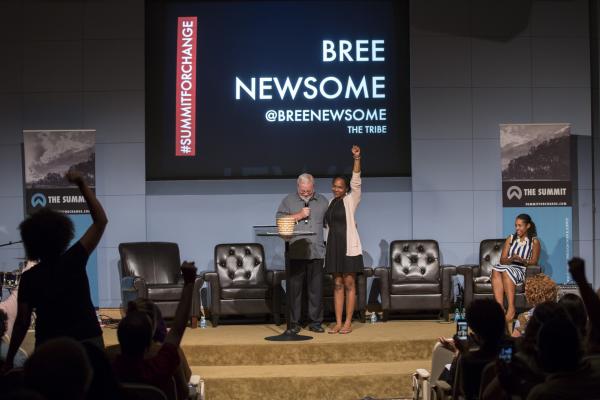Jun 30, 2016
Bree Newsome, a Christian activist from North Carolina, climbed into history last year when she scaled the flagpole of the South Carolina state house and removed the longstanding Confederate flag. One year later, Sojourners caught up with Newsome, an honoree at The Summit 2016, on what her action helped bring down — and build up.
Read the Full Article

Already a subscriber? Login
